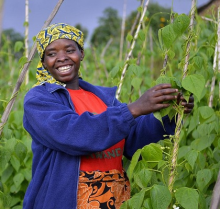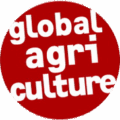
New research indicates that so-called ‘green revolution’ agricultural policies aimed at alleviating poverty in Africa could be making things worse. A study by the University of East Anglia, published in the February issue of the journal World Development, found that forcing “modern” farming practices on rural communities in sub-Saharan Africa may contribute to increased landlessness, poverty, food insecurity and inequality. The authors looked in-depth at Rwanda’s agricultural policies and the changes affecting the rural inhabitants in eight villages in the country’s mountainous west where smallholders depend on the food they grow on their small plots. The two main components of this strategy are the Rwandan Land Policy and the Crop Intensification Program, which involves a rapid shift away from traditional modes of production towards specialisation in a small number of government-approved, marketable staple or cash crops with the use of new seed varieties and chemical fertilisers. According to lead author Dr Neil Dawson and his team, Rwanda’s agricultural policies are pronounced as successful in alleviating poverty and enhancing food security by the International Monetary Fund and other donors without paying attention to the negative impacts on the poorest and the perspectives of rural inhabitants themselves. The study reveals that only a relatively wealthy minority have been able to keep to enforced modernisation because the poorest farmers cannot afford the risk of taking out credit for expensive inputs, such as fertilisers. “Similar results are emerging from other experiments in Africa. Agricultural development certainly has the potential to help these people, but instead these policies appear to be exacerbating landlessness and inequality for poorer rural inhabitants,” said Dr Dawson. “Such policies may increase aggregate production of exportable crops, yet for many of the poorest smallholders they strip them of their main productive resource, land.” He said it was startling to see that policies with such far-reaching impacts for poor people are, in general, so inadequately assessed. According to the study, conditions facing African countries today are very different from those past successes with green revolution policies in Asia some 40 years ago. However, wealthy donors such as the Gates Foundation, initiatives such as the New Alliance for Food Security and Nutrition, and multinational companies such as Monsanto continue pushing agricultural modernisation in Africa – even though the mechanisms for achieving improvements in the lives of smallholder farmers through such policies are unclear. Dr Dawson and his team conclude that these green revolution policies should be subject to much broader and more rigorous impact assessments. They also recommend that measures to prevent poverty-exacerbating impacts should be incorporated into such policies. In the case of Rwanda, this means encouraging land access for the poorest and supporting traditional practices during a gradual and voluntary “modernisation,” the authors write. (ab)
